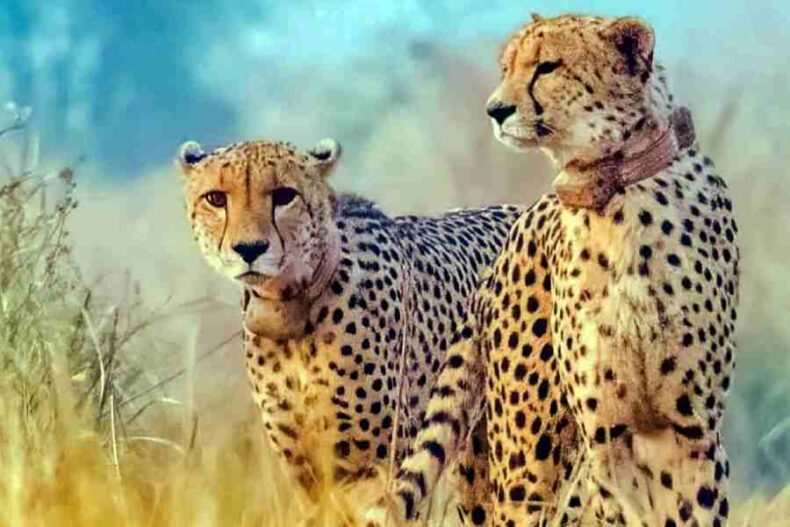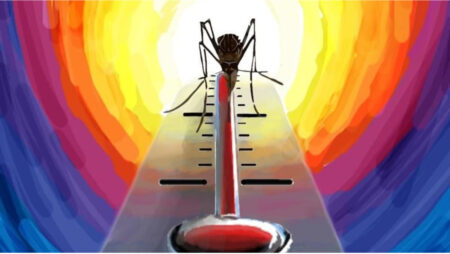In a significant step towards conservation efforts, wildlife authorities at Kuno National Park took on the delicate task of temporarily removing radio collars from six cheetahs to conduct a comprehensive health examination. The procedure, conducted by a team of experienced veterinarians and park rangers, aims to ensure the well-being of these magnificent cheetahs and gather vital data for their conservation.
Kuno National Park, has been at the forefront of India’s ambitious cheetah reintroduction program. The park has been selected as a potential habitat for the reintroduction of cheetahs, an endeavor aimed at restoring the species’ presence in the country after their extinction in India nearly a century ago.
The radio collars, which were previously fitted on the cheetahs as part of a monitoring program, play a crucial role in tracking and studying the animals’ movements, behavior, and health status. The data collected from these collars provides valuable insights into the adaptability of cheetahs to the park’s environment and informs conservation strategies.
A prominent wildlife veterinarian had led the entire health examination process. The team ensured that the procedure was carried out with utmost care and precision, prioritizing the well-being of the cheetahs throughout the process.
“While the radio collars have been indispensable in our efforts to monitor and study the cheetah population in Kuno National Park, it is equally vital to periodically conduct health assessments on these magnificent creatures,” stated the Doctor. “The examination will help us identify any potential health concerns and ensure that the cheetahs are thriving in their natural habitat.”
The examination involved conducting comprehensive medical evaluations, including physical checks, blood tests, and dental examinations, among others. The team also collected samples to study the cheetahs’ genetic makeup, which would provide essential information for their future conservation and breeding programs.
The temporary removal of the radio collars was carefully coordinated to minimize any stress or disruption to the cheetahs’ routines. Once the health assessments were completed, the collars were safely reattached, and the cheetahs were observed for a short period to ensure a smooth transition back into their natural habitat.
The Chief Wildlife Warden of the region, expressed his satisfaction with the successful completion of the health examination. “The health and well-being of the cheetahs are of utmost importance to us as we strive to create a conducive environment for their successful reintroduction,” he said. “The data gathered from this examination will guide our efforts in ensuring a thriving cheetah population in Kuno National Park.”
The cheetah reintroduction program in India has garnered immense attention and support from wildlife enthusiasts and conservationists worldwide. It represents a significant milestone in India’s commitment to preserving its unique biodiversity and restoring the natural balance in its ecosystems.
As the cheetahs at Kuno National Park continue to thrive under the watchful eyes of conservationists, the health examination and monitoring efforts are expected to play a pivotal role in safeguarding the future of these iconic predators in their ancestral homeland.













